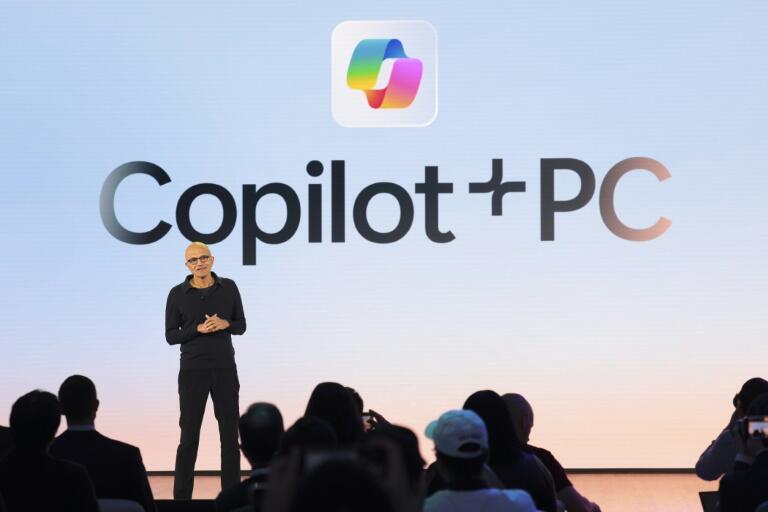The newly introduced AI computers, branded as Copilot+ PCs, are designed to address the prolonged slump in PC sales. These devices are equipped with specialized processors that support sophisticated AI tools, enhancing the computing experience without the need for an internet connection. The lineup includes a revamped Surface Pro tablet and Surface laptop, both of which incorporate OpenAI’s latest GPT-4o technology. This technology enables the devices to function as digital personal assistants capable of engaging in real-time spoken conversations and interacting with users through text and visual inputs.
One of the standout features of the new hardware is its ability to process AI tasks directly on the device, which includes capabilities such as viewing and discussing screenshots, photos, documents, or charts uploaded by users. Furthermore, Microsoft’s existing AI assistant, Copilot, has been integrated across various products like Bing and Microsoft 365 to assist with tasks ranging from email management in Outlook to presentation design in PowerPoint.
Additional features include Recall, a tool that acts as a personal ‘time machine’ helping users quickly locate documents, images, and websites on their computer. Another feature offers real-time translation into over 40 languages, processed locally on the device. Microsoft also introduced Team Copilot, a tool designed to facilitate meetings by creating agendas and taking notes, enhancing productivity for entire teams, not just individual users.
The push towards AI-integrated PCs isn’t exclusive to Microsoft. Industry competitors such as Dell and Lenovo have also launched AI-first PCs under the Copilot+ AI umbrella, signaling a broader industry shift towards next-generation computing solutions. Apple is expected to follow suit with new AI-powered tools for its iPhone and Mac platforms at its upcoming Worldwide Developers Conference.
Experts believe that AI capability will soon become a standard feature across computing devices. Geoff Blaber, CEO at CCS Insight, commented, “Microsoft and its partners have made a solid start, but they will need to work hard to ensure that AI becomes a lot more than just a meaningless descriptor with a growing number of features.”
Microsoft’s advancements in AI are not only reshaping its product offerings but are also reflected in its financial success. The company recently reported significant growth in quarterly profits and revenue, bolstered by the strong performance of its Azure cloud business, which has been greatly enhanced by AI developments.
In addition to product innovation, Microsoft is investing heavily in AI infrastructure and training. The company announced plans to invest $3.3 billion in building a data hub in Wisconsin, which aims to create thousands of jobs and train approximately 100,000 workers in the state on how to effectively utilize AI technologies.
As Microsoft continues to integrate AI into its core products and services, it remains a pivotal player in shaping the future of personal and professional computing, driving innovation, and transforming how users interact with technology.







